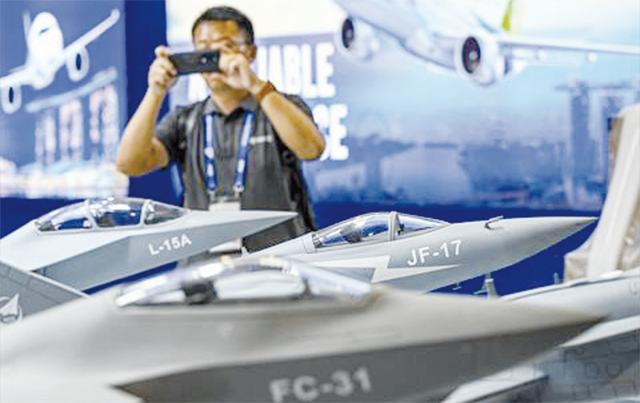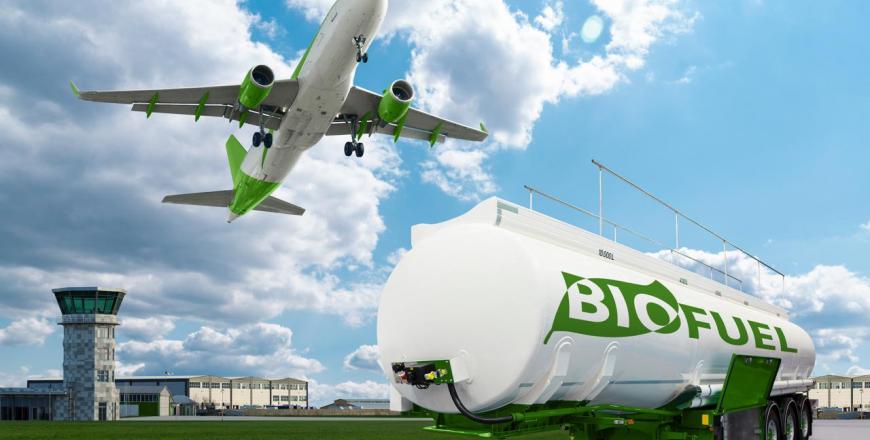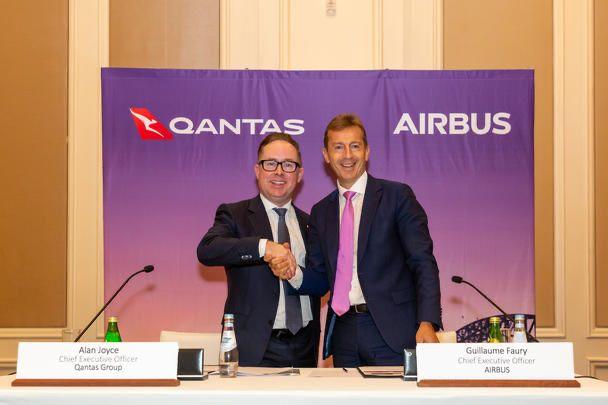You are here
Singapore to require gradual use of low-carbon jet fuel from 2026
By AFP - Feb 19,2024 - Last updated at Feb 19,2024

A man takes photograph of miniature models of China's fighter jets ahead of the Singapore Airshow in Singapore on Monday (AFP photo)
SINGAPORE — Aviation hub Singapore will require airlines departing from the city-state to use sustainable aviation fuel (SAF) from 2026 as part of industry plans to cut carbon emissions, the transport minister said on Monday.
But as the environmentally friendly fuel is three to five times more expensive than conventional jet fuel, authorities will introduce a levy on tickets to help cushion costs, Chee Hong Tat told an aviation summit.
Aviation is responsible for between two and three per cent of global CO2 emissions but it is one of the most difficult industries to decarbonise.
SAFs are produced from renewable biomass and waste resources and can comprise up to 50 per cent of jet fuel mixes.
They are seen as the main tool for decarbonising the aviation sector, but the technology is still in its infancy and production remains expensive.
"To kickstart SAF adoption in Singapore, we will require flights departing Singapore to use SAF from 2026," Chee said in a speech.
Airliners will be required to use a jet fuel mix that is 1 per cent SAF that year, gradually increasing to between 3 and 5 per cent by 2030, he added.
"This will provide an important demand signal to fuel producers and give them the incentive to invest in new SAF production facilities," Chee said.
To partially offset the cost, Singapore will collect a levy that varies depending on the distance travelled and the travel class.
Starting in 2026, an economy ticket on a direct flight from Singapore to London could increase by Sg$16.0 ($12.0), according to Chee.
Passengers with premium tickets will pay higher levies.
"We will monitor global developments and the wider availability and adoption of SAF in the next few years, before deciding on the SAF target beyond 2026," Chee said.
The International Civil Aviation Organization has set a goal for the industry to achieve net zero carbon emissions by 2050, and SAF is key to reaching that target.
Chee said that it was best to take a gradual approach.
An "overly ambitious" target "will hurt our air hub and our economy, and raise the cost of travel for passengers", he said at the summit, which is being held on the eve of the Singapore Airshow, Asia's biggest aviation event.
Willie Walsh, director-general of the International Air Transport Association, called for increased SAF production through government incentives to meet demand.
He said that while passenger traffic surged 175 per cent from 2000 to 2019, the global aviation industry's carbon footprint rose by only 54 per cent, an encouraging sign.
Related Articles
DUBAI — Emirates said it successfully flew a Boeing 777 powered by sustainable aviation fuel on Monday, as the Middle East's largest airline
AMMAN - The International Air Transport Association (IATA) on Tuesday called on governments to urgently put in place large-scale incentives
AMMAN - The Qantas Group and Airbus will invest up to $200 million to accelerate the establishment of a sustainable aviation fuel (SAF) indu













